June 29 stands as one of history’s most eventful days, witnessing the rise and fall of empires, groundbreaking discoveries, and moments that shaped our modern world across centuries of human achievement.

Politics and Government Events on June 29
1916 – British Diplomat Roger Casement Sentenced to Death for Easter Rising
British courts condemned diplomat-turned-nationalist Roger Casement to death for his role in Ireland’s Easter Rising. The trial marked a dramatic fall from grace for the former colonial administrator who had exposed atrocities in the Congo and Peru.
Casement’s transformation from imperial servant to Irish revolutionary symbolized the growing tensions within the British Empire. His case became a cause célèbre, highlighting the complex loyalties dividing Ireland during the independence struggle.
1945 – Soviet Union Annexes Carpathian Ruthenia
The Soviet Union formally annexed Carpathian Ruthenia from Czechoslovakia, expanding Stalin’s influence into Central Europe. This territorial seizure represented another step in the USSR’s post-war consolidation of power.
The annexation displaced thousands of residents and redrew the map of Eastern Europe. Local populations found themselves suddenly living under Soviet rule, marking the beginning of decades of communist control.
1950 – President Truman Authorizes Korean War Naval Blockade
President Harry Truman authorized a comprehensive naval blockade of Korea as the conflict escalated. This decisive action marked America’s full military commitment to defending South Korea against northern aggression.
The blockade strategy aimed to cut off vital supply lines and isolate enemy forces. Truman’s decision demonstrated America’s willingness to use all military resources in the emerging Cold War confrontation.
1974 – Isabel Perón Assumes Presidential Powers in Argentina
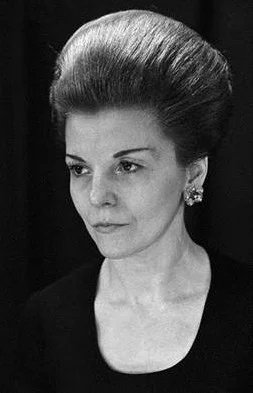
Vice President Isabel Perón assumed presidential duties as her husband Juan Perón lay terminally ill. This transition marked a crucial moment in Argentine politics, as the nation prepared for leadership change.
Isabel’s assumption of power represented a historic first for women in Argentine politics. Her temporary presidency would soon become permanent, making her the world’s first female president.
1976 – Seychelles Gains Independence from Britain
The Seychelles archipelago achieved independence from British colonial rule after decades of imperial administration. The newly sovereign nation celebrated its freedom with ceremonies across the scattered Indian Ocean islands.
Independence brought both opportunities and challenges for the small island nation. The Seychelles faced the task of building viable institutions while maintaining its unique cultural identity.
2022 – Islamic State Declares Caliphate in Syria and Iraq
The Islamic State of Iraq and the Levant proclaimed its caliphate across territories in Syria and northern Iraq. This declaration shocked the international community and marked a dramatic escalation in Middle Eastern conflicts.
The self-proclaimed caliphate represented the most significant territorial claim by an extremist organization in modern history. World leaders immediately condemned the declaration while preparing military responses to the growing threat.
Military and Naval History on June 29
1927 – First Transpacific Flight Completed
The U.S. Army Air Corps Fokker tri-motor “Bird of Paradise” completed the first transpacific flight from the mainland United States to Hawaii. This groundbreaking achievement demonstrated aviation’s potential for long-distance military operations.
The successful flight opened new possibilities for Pacific defense strategies and commercial aviation. Military planners immediately recognized the strategic implications for America’s growing presence in the Pacific region.
1971 – Soyuz 11 Crew Dies in Space Tragedy
Three Soviet cosmonauts died during re-entry when their Soyuz 11 spacecraft depressurized after a record-setting mission to Salyut 1. Georgy Dobrovolsky, Vladislav Volkov, and Viktor Patsayev became the first humans to die in space.
The tragedy marked a devastating setback for the Soviet space program and highlighted the extreme dangers of space exploration. Their deaths led to comprehensive safety reforms and redesigned spacecraft systems.
2002 – Naval Clashes Between North and South Korea
Naval forces from North and South Korea engaged in deadly clashes that killed six South Korean sailors and sank a North Korean vessel. The confrontation escalated tensions on the Korean Peninsula to dangerous levels.
The naval battle occurred in disputed waters, highlighting ongoing territorial disputes between the divided nations. International observers feared the incident might trigger broader military confrontations in the region.
2018 – Soyuz 11 Space Disaster
Following their record-breaking mission aboard Salyut 1, the three-man crew of Soyuz 11 perished when their capsule depressurized during re-entry. The tragedy marked the first deaths to occur in the vacuum of space.
This devastating accident exposed critical safety flaws in spacecraft design and led to comprehensive reforms in space program protocols. The loss profoundly impacted both Soviet space ambitions and international cooperation in space exploration.
Science and Discovery Milestones on June 29
1995 – Space Shuttle Atlantis Docks with Mir Station
Space Shuttle Atlantis successfully docked with the Russian space station Mir for the first time in history. This achievement marked a new era of international cooperation in space exploration.
The historic docking represented a dramatic shift from Cold War competition to collaborative scientific endeavor. Astronauts and cosmonauts worked together, sharing technology and conducting joint experiments in orbit.
2020 – Apple Releases Revolutionary iPhone
Apple Inc. launched its first mobile phone, the iPhone, revolutionizing personal communication and mobile computing. The device’s touchscreen interface and integrated applications transformed the entire technology industry.
The iPhone’s introduction marked the beginning of the smartphone era, fundamentally changing how people access information and communicate. Its innovative design influenced countless competitors and established new standards for mobile technology.
2012 – Devastating Derecho Strikes Eastern United States
A powerful derecho swept across the eastern United States, killing at least 22 people and leaving millions without power. The severe weather system caused unprecedented damage across multiple states.
The derecho’s intensity surprised meteorologists and emergency responders, demonstrating the increasing severity of extreme weather events. Recovery efforts took weeks as utilities struggled to restore power to affected communities.
Cultural and Arts Events on June 29
1952 – First Miss Universe Pageant Held
The inaugural Miss Universe pageant crowned Armi Kuusela from Finland as the first titleholder. This new international beauty competition established a global platform for women’s achievement and cultural exchange.
The pageant’s creation reflected post-war desires for international unity and cultural celebration. The competition quickly grew into a worldwide phenomenon, showcasing diverse cultures and promoting women’s accomplishments.
1987 – Van Gogh Painting Sets Auction Record

Vincent van Gogh’s “Le Pont de Trinquetaille” sold for $20.4 million at a London auction, setting a new record for art sales. The astronomical price reflected growing appreciation for Post-Impressionist masterpieces.
The sale marked the beginning of art market speculation that would drive prices to unprecedented levels. Museums and private collectors competed fiercely for works by history’s most celebrated artists.
1974 – Mikhail Baryshnikov Defects to Canada

Renowned ballet dancer Mikhail Baryshnikov defected from the Soviet Union to Canada while touring with the Kirov Ballet. His dramatic escape shocked the international dance community and highlighted artistic freedom struggles.
Baryshnikov’s defection represented a significant cultural loss for the Soviet Union and a tremendous gain for Western ballet. His decision inspired other artists to seek creative freedom beyond the Iron Curtain.
Religious and Social Events on June 29
1972 – Supreme Court Rules on Death Penalty
The United States Supreme Court ruled in Furman v. Georgia that arbitrary death penalty application violates constitutional protections against cruel and unusual punishment. This landmark decision temporarily halted executions nationwide.
The ruling forced states to reconsider their capital punishment statutes and establish more consistent application standards. The decision sparked intense national debate about justice, morality, and the role of government in taking life.
1976 – European Communist Parties Convene in East Berlin
The Conference of Communist and Workers Parties of Europe convened in East Berlin, bringing together representatives from across the continent. This gathering demonstrated continued ideological solidarity despite growing political differences.
The conference revealed tensions between Soviet-aligned parties and those seeking greater independence from Moscow. European communist movements struggled to maintain unity while adapting to changing political circumstances.
2006 – Supreme Court Rules on Guantanamo Tribunals
The U.S. Supreme Court ruled in Hamdan v. Rumsfeld that President Bush’s military tribunal plans for Guantanamo Bay detainees violated American and international law. This decision challenged executive power during the War on Terror.
The ruling forced the administration to seek congressional authorization for military commissions and established important precedents for detainee rights. Legal scholars hailed the decision as a crucial check on presidential war powers.
Business and Economic Events on June 29
1995 – Sampoong Department Store Collapse

The Sampoong Department Store collapsed in Seoul, South Korea, killing 502 people and injuring 937 others. This tragedy exposed serious construction safety violations and corporate negligence.
The disaster prompted comprehensive reforms in South Korean building codes and corporate accountability standards. The collapse became a symbol of rapid industrialization’s dangers when safety considerations are ignored.
2007 – Apple Launches iPhone Revolution
Apple Inc. released its groundbreaking iPhone, transforming the mobile phone industry and creating entirely new markets. The device’s innovative design and functionality redefined personal technology.
The iPhone’s introduction sparked a technological revolution that affected industries from telecommunications to photography. Its success established Apple as the world’s most valuable company and changed consumer expectations permanently.
1987 – Record-Breaking Van Gogh Art Sale

Vincent van Gogh’s painting “Le Pont de Trinquetaille” achieved a record-breaking sale price of $20.4 million at a London auction. This unprecedented amount signaled the art market’s dramatic transformation.
The sale reflected growing investment interest in fine art and established new benchmarks for masterpiece valuations. Collectors and museums recognized art’s potential as both cultural treasure and financial asset.
Transportation and Infrastructure on June 29
1956 – Interstate Highway System Created
President Dwight D. Eisenhower signed the Federal Aid Highway Act of 1956, officially creating the United States Interstate Highway System. This massive infrastructure project would transform American transportation and commerce.
The interstate system represented the largest public works project in American history, connecting cities and regions with unprecedented efficiency. The network facilitated economic growth, suburban development, and national defense capabilities.
1922 – France Grants Vimy Ridge to Canada
France granted Canada permanent use of one square kilometer at Vimy Ridge, exempting the land from all taxes in perpetuity. This generous gift honored Canadian sacrifices during World War I.
The memorial site became a symbol of Canadian national identity and military valor. France’s gesture recognized the tremendous contributions of Canadian forces to Allied victory in the Great War.
1972 – Fatal Aircraft Collision Over Wisconsin
A Convair CV-580 and De Havilland Canada DHC-6 Twin Otter collided above Lake Winnebago near Appleton, Wisconsin, killing all 13 aboard both aircraft. The tragic accident highlighted aviation safety concerns.
The collision prompted comprehensive reviews of air traffic control procedures and aircraft separation standards. Aviation authorities implemented new safety protocols to prevent similar mid-air disasters.
Sports and Recreation on June 29
1952 – Miss Universe Pageant Debuts
The first Miss Universe pageant crowned Finland’s Armi Kuusela as the inaugural winner, establishing a new international competition celebrating women’s achievement. The event launched a global phenomenon in beauty pageants.
The pageant’s creation reflected post-war optimism and international cooperation, bringing together women from around the world. The competition evolved into a platform for social causes and cultural exchange.
1915 – Edmonton Flood Disaster
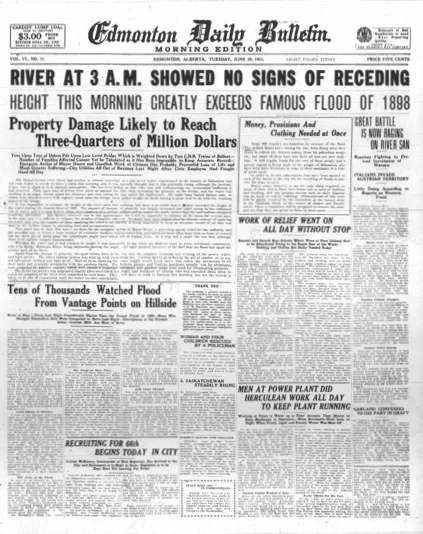
The North Saskatchewan River flood of 1915 devastated Edmonton, becoming the worst flood in the city’s history. The disaster highlighted the need for better flood control and urban planning.
The catastrophic flooding displaced thousands of residents and caused extensive property damage throughout the region. Recovery efforts took months as the community rebuilt stronger flood defenses.
1972 – Supreme Court Death Penalty Decision
The Supreme Court’s Furman v. Georgia decision effectively halted executions nationwide by ruling against arbitrary death penalty application. This landmark ruling transformed American criminal justice systems.
The decision forced comprehensive reforms in capital punishment procedures and sparked nationwide debates about justice and morality. States scrambled to revise their death penalty statutes to meet constitutional requirements.
Notable Births on June 29
1901 – Nelson Eddy, American Singer and Actor

Nelson Eddy was born in Providence, Rhode Island, destined to become one of America’s most beloved operatic baritones. His powerful voice and charismatic screen presence would captivate audiences for decades.
Eddy’s partnership with Jeanette MacDonald created some of Hollywood’s most memorable musical films. Their collaborations helped establish the musical film genre and brought classical music to mainstream American audiences.
1920 – Ray Harryhausen, Special Effects Pioneer
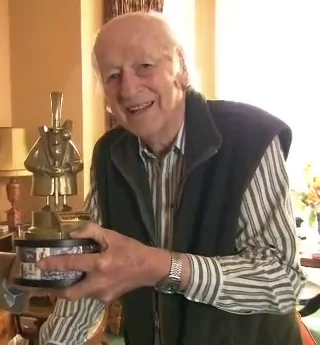
Ray Harryhausen entered the world in Los Angeles, California, bringing with him an imagination that would revolutionize cinema. His childhood fascination with dinosaurs and mythology shaped his groundbreaking career.
Harryhausen’s stop-motion animation techniques brought countless monsters and mythical creatures to life on screen. His innovative work influenced generations of filmmakers and established new standards for special effects artistry.
1941 – Stokely Carmichael, Civil Rights Activist
Stokely Carmichael was born in Port of Spain, Trinidad, later becoming a pivotal figure in America’s civil rights movement. His passionate advocacy for Black Power transformed the struggle for racial equality.
Carmichael’s leadership in the Student Nonviolent Coordinating Committee brought new energy to civil rights activism. His powerful speeches and organizing skills helped galvanize a generation of young activists.
1944 – Gary Busey, American Actor

Gary Busey was born in Goose Creek, Texas, beginning a life that would span music, film, and television. His intense performances and distinctive personality made him one of Hollywood’s most recognizable character actors.
Busey’s portrayal of Buddy Holly in “The Buddy Holly Story” earned him an Academy Award nomination. His fearless approach to acting and willingness to take risks established him as a versatile performer.
1958 – Rosa Mota, Portuguese Marathon Champion

Rosa Mota was born in Oporto, Portugal, destined to become one of the world’s greatest marathon runners. Her dedication to distance running would bring international recognition to Portuguese athletics.
Mota’s Olympic gold medal in 1988 made her a national hero and inspired countless young athletes. Her consistent excellence in marathon competition established new standards for women’s long-distance running.
1982 – Colin Jost, American Comedian

Colin Jost was born in New York City, beginning a journey that would lead him to become one of comedy’s most recognizable voices. His sharp wit and observational humor resonated with audiences nationwide.
Jost’s work as head writer and Weekend Update anchor on Saturday Night Live established his comedic credentials. His ability to blend political satire with accessible humor made him a standout performer.
1991 – Kawhi Leonard, Professional Basketball Player

Kawhi Leonard was born in Los Angeles, California, bringing natural athletic ability that would make him one of basketball’s elite players. His quiet demeanor masked an intensely competitive spirit.
Leonard’s defensive prowess and clutch performances earned him multiple NBA championships and Finals MVP awards. His ability to excel on both ends of the court established him among the game’s premier two-way players.
2003 – Jude Bellingham, English Footballer

Jude Bellingham was born in Stourbridge, England, entering the world with exceptional football talent that would quickly attract international attention. His technical skills and maturity belied his young age.
Bellingham’s rapid progression from youth football to professional stardom demonstrated his exceptional abilities. His performances for club and country established him as one of football’s brightest young talents.
Notable Deaths on June 29
1940 – Paul Klee, Swiss Artist
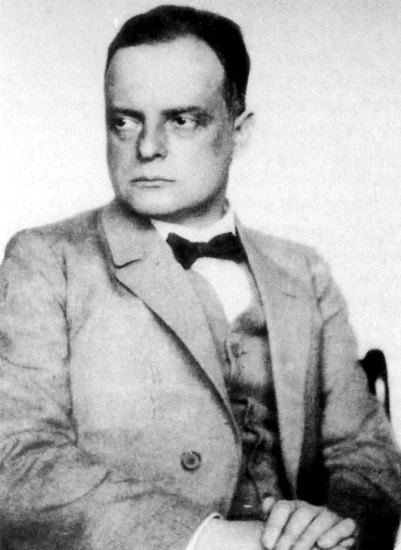
Paul Klee died in Muralto, Switzerland, leaving behind a revolutionary artistic legacy that bridged multiple movements. His unique style combined elements of expressionism, cubism, and surrealism into distinctive masterpieces.
Klee’s theoretical writings on art and color influenced generations of artists and educators. His innovative approach to form and composition helped establish modern art’s fundamental principles.
1967 – Jayne Mansfield, American Actress

Jayne Mansfield died tragically in a car accident near New Orleans, Louisiana, ending the life of one of Hollywood’s most recognizable stars. Her platinum blonde beauty and vivacious personality had made her a cultural icon.
Mansfield’s death shocked the entertainment world and highlighted the dangers of celebrity lifestyle. Her influence on popular culture and fashion continued long after her untimely passing.
1975 – Tim Buckley, American Singer-Songwriter
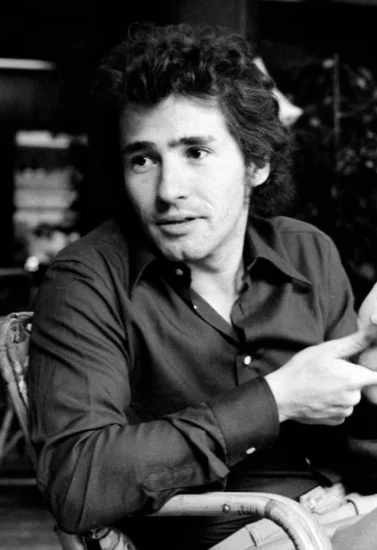
Tim Buckley died in Santa Monica, California, from a drug overdose that cut short a promising musical career. His experimental approach to folk and rock music had earned critical acclaim and devoted followers.
Buckley’s vocal range and artistic ambition pushed the boundaries of popular music. His innovative compositions and performances influenced countless musicians and established him as a cult figure.
1978 – Bob Crane, American Actor
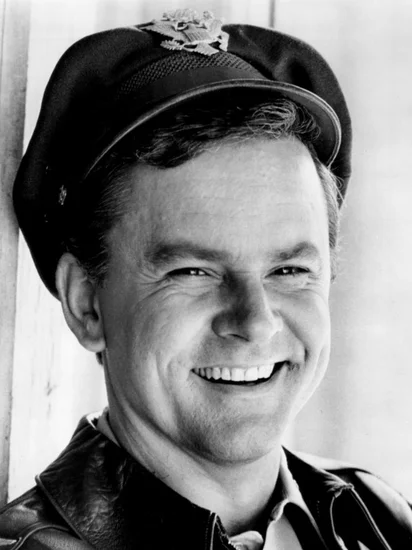
Bob Crane died under mysterious circumstances in Scottsdale, Arizona, ending the life of the beloved “Hogan’s Heroes” star. His murder remains one of Hollywood’s most infamous unsolved cases.
Crane’s comedic talent and television success made him a household name throughout America. His tragic death cast a shadow over his entertainment legacy and sparked numerous investigations.
2003 – Katharine Hepburn, American Actress

Katharine Hepburn died at her Connecticut home, concluding one of cinema’s most distinguished careers. Her fierce independence and exceptional talent earned her four Academy Awards and legendary status.
Hepburn’s pioneering roles challenged traditional female stereotypes and established new standards for women in film. Her influence on acting and women’s rights extended far beyond her movie performances.
2020 – Carl Reiner, American Comedy Legend

Carl Reiner died at his Beverly Hills home at age 98, ending a career that spanned seven decades in entertainment. His contributions to comedy writing, directing, and performing influenced generations of entertainers.
Reiner’s work on “The Dick Van Dyke Show” and collaboration with Mel Brooks established him as a comedy pioneer. His mentorship of young talent and innovative approach to humor shaped modern American comedy.
Holidays and Observances on June 29
Feast of Saints Peter and Paul

Western Christianity celebrates the Feast of Saints Peter and Paul, honoring the two apostles who played crucial roles in establishing the early Church. This major Christian holiday commemorates their martyrdom and theological contributions.
The feast day holds special significance in Catholic and Orthodox traditions, marking the foundation of papal authority. Churches worldwide conduct special services celebrating the apostles’ evangelistic work and ultimate sacrifice.
Independence Day of Seychelles
The Seychelles celebrates its Independence Day, commemorating freedom from British colonial rule achieved in 1976. This national holiday marks the archipelago’s emergence as a sovereign nation in the Indian Ocean.
Citizens participate in parades, cultural performances, and patriotic ceremonies throughout the island chain. The celebration reflects the nation’s pride in its unique heritage and successful transition to independence.
National Statistics Day in India
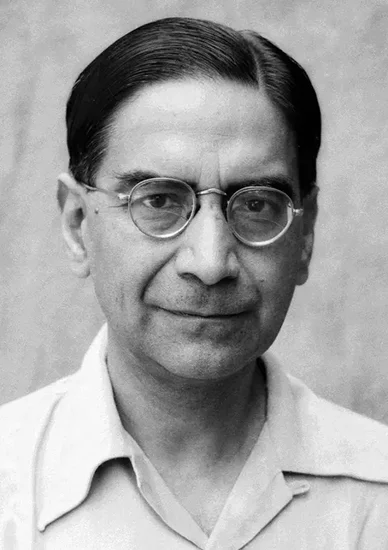
India observes National Statistics Day to honor the contributions of Professor P.C. Mahalanobis to statistical science and economic planning. This observance promotes statistical literacy and data-driven decision making.
The day emphasizes statistics’ crucial role in national development and policy formation. Educational institutions and government agencies conduct special programs highlighting statistical methodology and applications.
Engineer’s Day in Ecuador
Ecuador celebrates Engineer’s Day, recognizing the vital contributions of engineering professionals to national development. This observance honors the technical expertise that drives infrastructure and technological advancement.
Professional engineering societies organize conferences, awards ceremonies, and educational outreach programs. The celebration promotes engineering careers and highlights the profession’s importance to economic progress.
